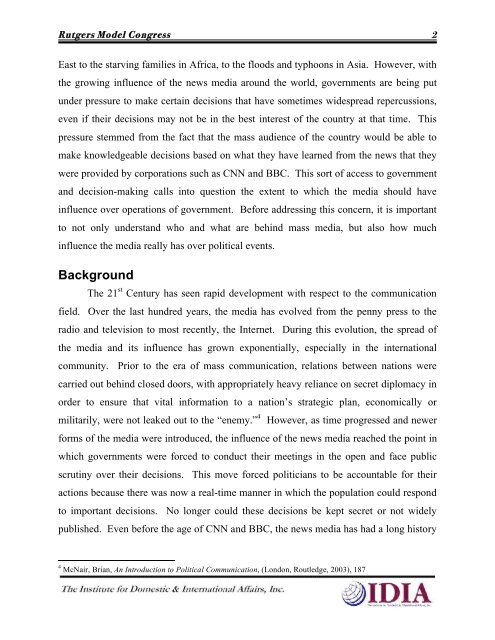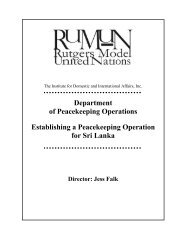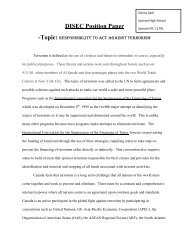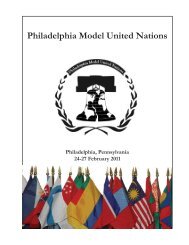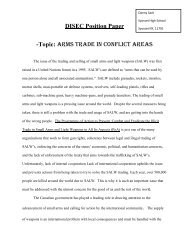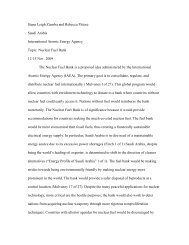National Press Corps Director: Sam Zeidman - Institute for Domestic ...
National Press Corps Director: Sam Zeidman - Institute for Domestic ...
National Press Corps Director: Sam Zeidman - Institute for Domestic ...
You also want an ePaper? Increase the reach of your titles
YUMPU automatically turns print PDFs into web optimized ePapers that Google loves.
R u t g e r s Mo d e l C o n g r e s s 2<br />
East to the starving families in Africa, to the floods and typhoons in Asia. However, with<br />
the growing influence of the news media around the world, governments are being put<br />
under pressure to make certain decisions that have sometimes widespread repercussions,<br />
even if their decisions may not be in the best interest of the country at that time. This<br />
pressure stemmed from the fact that the mass audience of the country would be able to<br />
make knowledgeable decisions based on what they have learned from the news that they<br />
were provided by corporations such as CNN and BBC. This sort of access to government<br />
and decision-making calls into question the extent to which the media should have<br />
influence over operations of government. Be<strong>for</strong>e addressing this concern, it is important<br />
to not only understand who and what are behind mass media, but also how much<br />
influence the media really has over political events.<br />
Background<br />
The 21 st Century has seen rapid development with respect to the communication<br />
field. Over the last hundred years, the media has evolved from the penny press to the<br />
radio and television to most recently, the Internet. During this evolution, the spread of<br />
the media and its influence has grown exponentially, especially in the international<br />
community. Prior to the era of mass communication, relations between nations were<br />
carried out behind closed doors, with appropriately heavy reliance on secret diplomacy in<br />
order to ensure that vital in<strong>for</strong>mation to a nation’s strategic plan, economically or<br />
militarily, were not leaked out to the “enemy.” 4 However, as time progressed and newer<br />
<strong>for</strong>ms of the media were introduced, the influence of the news media reached the point in<br />
which governments were <strong>for</strong>ced to conduct their meetings in the open and face public<br />
scrutiny over their decisions. This move <strong>for</strong>ced politicians to be accountable <strong>for</strong> their<br />
actions because there was now a real-time manner in which the population could respond<br />
to important decisions. No longer could these decisions be kept secret or not widely<br />
published. Even be<strong>for</strong>e the age of CNN and BBC, the news media has had a long history<br />
4 McNair, Brian, An Introduction to Political Communication, (London, Routledge, 2003), 187


